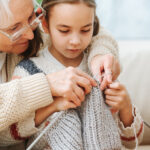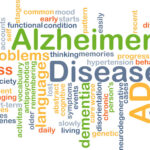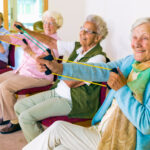
Family and togetherness are key themes for the holidays. Scenes of holiday hustle and bustle, idyllic decorations, and happy families can inspire us and get us into the holiday spirit. Perhaps your own family will be gathering together, your home is beautifully decorated, and your holidays are all that you hope them to be. Or maybe not! All the television commercials, Hallmark Christmas movies, and holiday activities can make this time of year awfully difficult for people who are grieving a loss. If the grief is fresh, holiday cheer can seem like an affront. The holidays can also be challenging if you have no family nearby, and celebrations can underscore how alone people feel.










